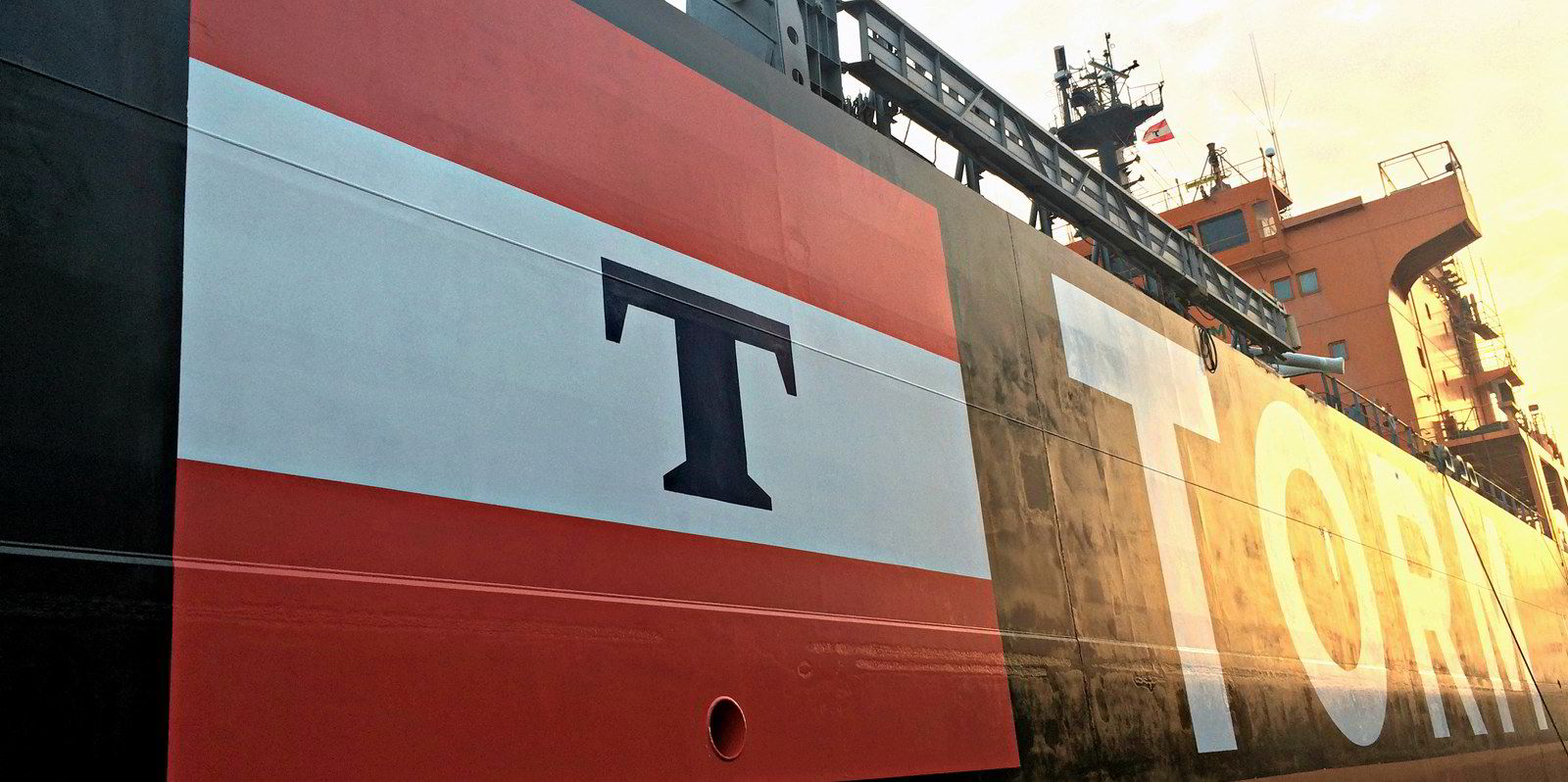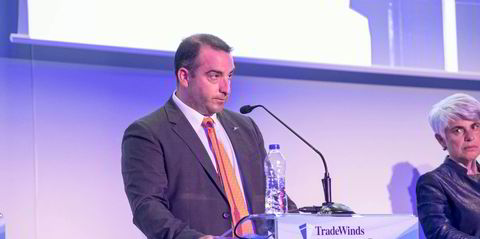Product tanker owner Torm has upgraded its forecast for an increase in tonne-miles linked to the upheaval in oil markets following Russia’s invasion of Ukraine.
The Danish company has upped its tonne-mile calculations from 7% to 10% by the end of 2023 because of changes in trading patterns and shifts in global refinery capacity.
Chief executive Jacob Meldgaard said that the company had seen about 6% of the increase so far with the remainder reliant on an increase in demand for refined oils from Europe.
European countries stockpiled oil before the European Union introduced its import ban on Russian refined oils from 5 February but global demand is expected to rise this year, he told an investor call.
The changes have all contributed to rates rising with oil being carried over longer distances, longer ballast legs and tanker supply being squeezed.
Torm, one of the world’s largest product tanker companies, reported net profit of $153.6m for the first three months of this year compared with $10.4m for the same period in 2022.
“The sanctions are working in the way that they were intended so oil is flowing out of Russia and Europe is replenishing refined products from further away,” said Meldgaard.
“The volumes that we are experiencing are lower than what they were on average last year. This is because there was some stockpiling, taking place towards the end of last year…. But there’s more to come and that stems from a normalisation of import levels.”
Rates have dipped this year from the highs of 2022 that Meldgaard attributed to MR tankers leaving the Russian market during its refinery maintenance season. The increased availability of tonnage in non-Russian markets sent rates downwards, said Meldgaard.
“Our opinion is that Russia will not come back to exactly where they were on their exports, but close to… and that will take tonnage and efficiency in our market will go down leading to a higher freight rate environment.”
Torm stopped sailing to Russian ports or take on new business from Russian customers in the wake of the invasion of Ukraine. But it has benefitted from the changing trade flows caused by the war and Europe’s shift away from Russian diesel.
Torm expects Ebitda for the whole of the year to be in the range of $750m to $1.1bn, outstripping its record performance last year of $743m.
It said the impact of the decision in April by Opec+ to cut production was likely to have only limited effect and be outweighed by the longer trading distances.
Torm has covered 47% of its earning days for the whole of 2023 at $41,198 per day and 64% of its days for the second quarter.
Second quarter coverage includes 51% of days at $59,197 for its LR2s, 62% of its LR1s at $45,578 and 68% of its MR days at $35,804.
The company announced a dividend of $1.46 per share amounting to a total of $121.1m, which is expected to be made on 6 June.





